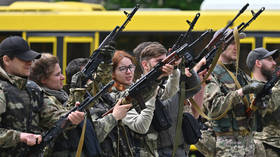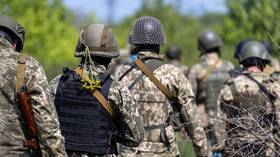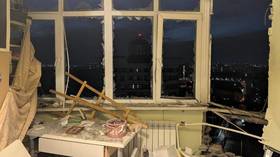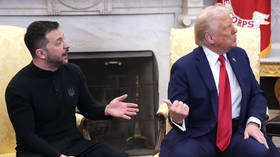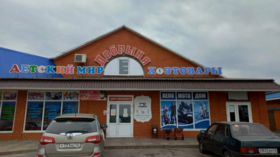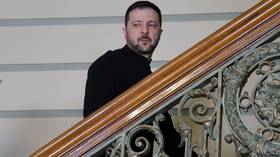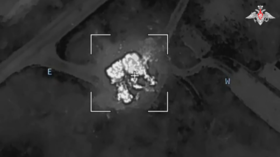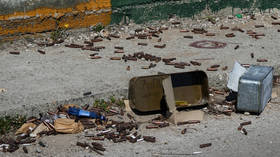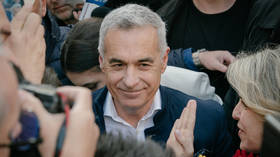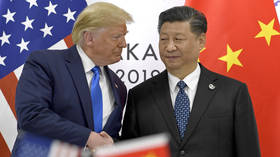NATO predicts how Ukraine conflict will end
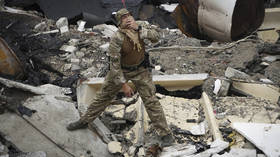
The conflict between Russia and Ukraine will probably end with a negotiated settlement, but that does not mean the West should stop sending arms to Kiev or reduce sanctions pressure on Moscow, NATO Secretary General Jens Stoltenberg said on Saturday.
“Most likely, this war will end at the negotiating table,” Stoltenberg told the Spanish newspaper El Pais, acknowledging that an outright military victory was not on the cards.
“Our responsibility is to ensure that Ukraine is in the strongest possible position and to help it remain a sovereign and independent European nation,” he said.
The best way to bolster Kiev's position ahead of talks with Moscow is “to provide strong military support, economic support, and push through tough sanctions against Russia,” the NATO chief added.
However, he declined to say when negotiations between Russia and Ukraine could take place.
“Peace can always be achieved if you surrender. But Ukraine is fighting for its freedom, for its right to exist, for the right to be a democratic nation without submitting to the power of Russia. And the Ukrainians are ready to pay a very high price, to sacrifice themselves for these values. It's not for us to tell them how far their sacrifices should go,” Stoltenberg said.
When asked whether the West’s arming of Kiev is fuelling the conflict and increasing loss of life in Ukraine, the NATO chief replied that “we help them because they're asking for it.”
“Throughout history we've seen nations willing to accept great sacrifices for freedom,” he added.
Stoltenerg also noted that despite weaponry being provided to Ukraine by the US and the EU, “there is no total war between NATO and Russia.”
Moscow has repeatedly warned against deliveries of foreign weapons to Kiev, arguing that they will only prolong the fighting and increase the risk of a direct confrontation between Russia and NATO.
In April, Foreign Minister Sergey Lavrov described the conflict in Ukraine as a proxy war waged by the US-led military alliance against Moscow.
Russian and Ukrainian delegations of various levels held several rounds of peace negotiations shortly after the outbreak of the fighting. But there have been no face-to-face meetings between the sides since late March, when they met in Istanbul.
Moscow was initially optimistic about the outcome of the talks in Turkey, but later accused Kiev of backtracking on the agreements that had been reached there, declaring it had lost all trust in the Ukrainian negotiators.
Russia attacked Ukraine following Kiev’s failure to implement the terms of the Minsk agreements, first signed in 2014, and Moscow's eventual recognition of the Donbass republics of Donetsk and Lugansk. The German- and French-brokered protocol was designed to give the breakaway regions special status within the Ukrainian state.
The Kremlin has since demanded that Ukraine officially declare itself a neutral country that will never join the US-led NATO military bloc. Kiev insists the Russian offensive was completely unprovoked and has denied claims it was planning to retake the two republics by force.
